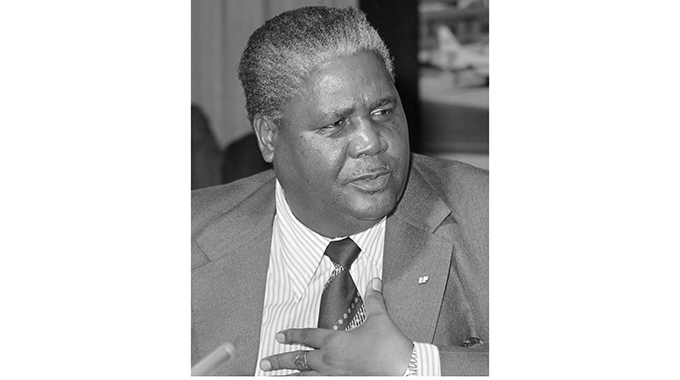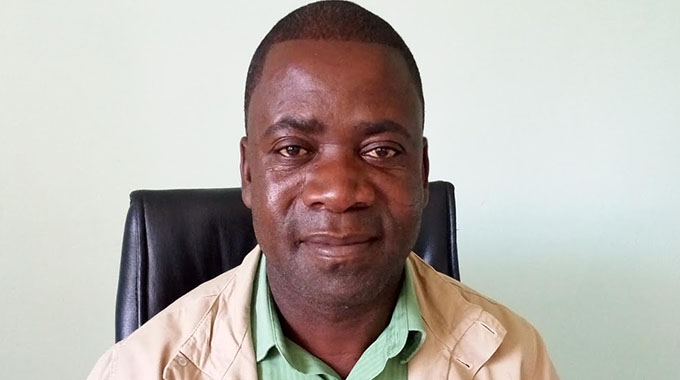Father Zimbabwe’s vision on unity

Elliot Ziwira Senior Writer
The desire for unity was alive in both ZANU-PF, led by the late former President Robert Mugabe and PF-ZAPU under the late Vice President Dr Joshua Nkomo through the revolutionary movements’ understanding of the meaning of collective struggle, bringing the two parties to append to an accord took more than political will.
It took dedication on both parties and their representatives as well as other mediators beginning from October 2, 1985 to achieve the peace that Zimbabweans enjoy today.
Then Prime Minister Mugabe and Dr Nkomo met 10 times between October 1985 and December 1987, with the final meeting taking place on December 10 at Parliament Building before the signing of the Unity Accord on December 22.
As enshrined in the preamble of the Unity Accord, both ZANU-PF and PF-ZAPU were “cognisant of the fact that the two parties jointly command the support of the overwhelming majority of the people of Zimbabwe as evidenced by the general election results of 1980 and 1985, respectively.”
The two revolutionary parties were: “Convinced that national unity, political stability, peace, law and order, social and economic development can only be achieved to their fullest under conditions of peace and the unity primarily of ZANU-PF and PF-ZAPU.”
As such, for unity to be effective in achieving desired objectives, the parties realised, it had to be driven from the political front.
True to what the late Burkinabe revolutionary Thomas Sankara once said, as human beings revolutionaries may die, but their ideas and legacies outlive them.
So it is with the signatories to the Unity Accord of 1987; the late former President Mugabe and the late Vice President Dr Nkomo, whose contributions will be looked at in each stead.
In this instalment, therefore, we will track the contributions of Dr Nkomo to the liberation of Zimbabwe, his selfless love and devotion to unity.
We will reflect on what the man affectionately known as Father Zimbabwe, Chibwechitedza, uMdala Wethu said about unity, colonial injustices and struggle.
Father Zimbabwe’s words after the signing of the Accord aptly capture his views on the essence of unity as a continuous facet in nationhood that goes beyond signatures.
Signatures, he averred, are “the beginning of unity” but not the end, for “unity is not just the signing of documents, unity is what follows.”
Unity, therefore, is a commitment that goes beyond individuals. Individuals function as mere signatories, whose selflessness carries the day for the collective both in the present and future times.
Such was Dr Nkomo’s belief; a belief resonant in the more than three decades that he fought colonial injustices for the realisation of the dreams of the downtrodden blacks in Rhodesia.
Always for his people’s total independence, Dr Nkomo never faltered in underscoring the quintessence of unity in the achievement of freedom.
On October 12, 1963, he told a gathering of 5 000 people at a nationalist meeting in Mufakose, Salisbury: “We have come here today because of the call of our land.
“You are part of a great struggle to free a great continent, and now you have a duty to free Zimbabwe. We are coming to the end of that struggle.
“With only two or three months left, we must prepare and see to it there is unity everywhere” (The Sunday Mail, 13 October, 1963).
To buttress his views on one-nation-one-people, at a rally in Victoria Falls on October 16, 1982, Father Zimbabwe said: “People of Zimbabwe are one and there is no Shona or Ndebele, but there is one Zimbabwe” (The Sunday Mail 17 October 1982).
In October 1976, in Geneva, Switzerland, he told Denis Sargent, a journalist, in an interview that the Patriotic Front was there to stay as the two liberation movements were “fighting to build a nation of people, not of tribes or nations, or colours.”
Of the Patriotic Front’s commitment to unity and permanence of will Dr Nkomo said, “(In) the few weeks of its existence, it appears we are getting closer and closer. Much more understanding is developing between us.
“We are working for harmony. It is very important for the two liberation movements with some sort of armies to harmonise to avoid the possibility of a clash.
He added: “If these young people can be turned into a regular force to defend the Independence of their country that they had been fighting to achieve, it could save the country from the horrors of civil war.”
Concerning the future, uMdala Wethu told Sargent: “I have something I want to say. People are worrying about what sort of future there will be for them, in particular people of white descent.
“They look at the future and think the African leaders, particularly those of the liberation movements, would like to see whites wiped out. This is completely mistaken.
Dr Nkomo reassured those of white descent: “No one is fighting white people as white people. I have struggled almost 30 years to remove an evil, the separation of people by races.
“I could not at the end of it find myself applying what I was fighting against. We regard people as people, and white people as people like ourselves, with the emphasis on the people, not on the white.
“Those of our white friends in that country (Rhodesia), who decided to make that country their home are just as much citizens as anyone else. The future we are fighting for is a future of respect for human rights.
“I could never be a party, nor could my colleagues, to a regime which relegated the rights of other people to a position of inferiority because they were a minority in the country.”
Still in Geneva for the conference (Geneva Conference), he sent a personal message to his people in Rhodesia on October 24, 1976: “We have come here to do a job that will sort out the injustices we have been fighting for years. We are in Geneva today to do a job which started years back — to work out a constitution that will give the people of Zimbabwe the right to choose their own government.
“I hope that those who are in control of the country and the people realise the responsibilities on their shoulders.
“The struggle nor the dangers are yet over. But we are at the beginning of the end of the problem” (Rhodesia Herald, October 25, 1976).
Conscious of the centrality of sacrifice in nation-building, on March 14, 1987, during the unity talks between PF-ZAPU and ZANU-PF, Dr Nkomo told journalists: “We are doing everything in our power to achieve unity and we believe we shall achieve it. If unity fails, we must give an account of why it failed. But when you bring groups of people together, they must be prepared to forgo some of their rights.
“This happens if our unity is to be meaningful. This must apply to both sides.”
In 1988 he said: “The first struggle, that of liberation, is over and now we are faced with the struggle to create a nation and for development to eliminate the problems that have faced us for almost a 100 years.”
Regarding freedom, Dr Nkomo told The Herald on September 27, 1988: “Although we are independent, we are not fully free. We cannot be free if people are afraid to go from one place to another.
“It would be terrible and what would the world say if we used the weapons we got to free our country against each other.
“We must unite and be an example.”
On February 16 1980, Dr Nkomo, told about 5 000 people at Mandava Stadium in Zvishavane that they should not be afraid to choose leaders they believe would represent their aspirations, because the war was not fought by people with guns alone.
He said: “This country wasn’t freed just by men with guns, as some will tell you.
“It was a combination of all of you. You must now combine to give a reasonable government that will see to it that this country is peaceful.
“There are stories going around that this country is going to be divided. It must not be divided, and all leaders must warn their followers against this sort of thing.
“Our primary task is to create one nation. All those fighters in unmarked graves died to liberate all of Zimbabwe as a single nation.”
Opening the Nkayi District Council at an occasion attended by 5 000 people, Dr Nkomo told councillors that they were not above the people who elected them, because councillors are “people’s people”.
He said: “Councillors are there for the benefit of the people and must work for the development of the area.
“No country is without problems, and there will always be problems. As some problems are solved, new ones will arise. We must all work to solve the problems as they come” (The Herald March 30, 1981).
On resettlement, uMdala Wethu called for patience as more land was being sought by the Government since it would not “happen overnight”.
“When you eventually get your land, make sure you know how to use it. We do not want to see this country turned into a desert” (The Herald March 30, 1981).








Comments